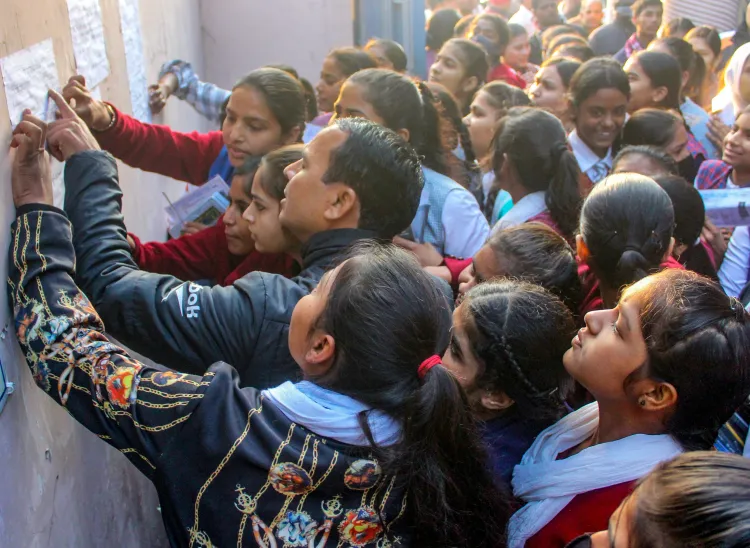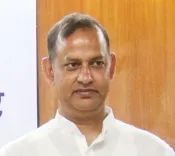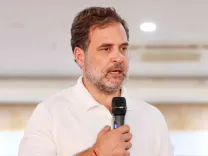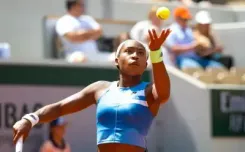Should India’s Education System Prioritize Skills Over Marks?

Synopsis
Key Takeaways
- Shift focus from grades to skills.
- Encourage creativity and critical thinking.
- Implement curriculum reforms for skill development.
- Foster partnerships between industries and academia.
- Recognize diverse talents beyond marks.
New Delhi, June 19 (NationPress) For many years, the education framework in India has been dominated by a fixation on grades and standardized testing. From board examinations to competitive entrance assessments, students’ academic achievements are evaluated predominantly through numerical values. Although this approach has resulted in a significant number of degree holders, it has not led to a workforce that is adequately skilled and employable.
As India enters a phase characterized by technological disruption, economic evolution, and global competitiveness, it is essential to pivot our focus from mere academic achievement to practical skills and real-world competencies.
The Issues with Marks-Centric Education
In the majority of Indian educational institutions, the evaluation of student performance is based on the ability to memorize and reproduce textbook information during written exams. This structure favors rote learning over genuine understanding, speed over thoroughness, and temporary cramming rather than enduring learning. The repercussions of this are significant.
• Stifled Creativity and Critical Thought: The relentless drive for high scores often suppresses creativity. Students are discouraged from asking questions, engaging in debates, or exploring various solutions. In a system focused on marks, there is scant opportunity for curiosity or innovative thinking.
• Mental Health Issues: The intense pressure associated with board exams, entrance tests, and university cut-offs has made academic performance a source of stress and anxiety for countless students. Depression, burnout, and even suicides related to exam results have become tragically common.
• Employability Challenges: A report from the Confederation of Indian Industry (CII) in 2023 revealed that nearly 50% of Indian graduates are deemed unemployable due to inadequate skills. Despite high academic scores, many students do not meet fundamental criteria in communication, problem-solving, or digital literacy.
• Disparity in Opportunity: A rigid exam-oriented system tends to benefit those who can afford coaching centers, private tuition, and nurturing environments. Students from underprivileged backgrounds often lag behind, not due to a lack of intelligence or ambition, but because of systemic barriers.
Global Shifts: Emphasizing Skills Over Scores
Numerous advanced economies have already begun to realign their educational systems to prioritize skills development. Finland, consistently ranked at the top in international education rankings, focuses on student well-being, creativity, and teamwork rather than standardized assessments. Germany’s dual education model combines classroom learning with practical vocational training, producing highly employable graduates.
Even in India, the National Education Policy (NEP) 2020 has recognized the urgent need to move towards a holistic, skills-based education system. This policy highlights the importance of critical thinking, experiential learning, and flexibility in subject selection. However, large-scale implementation remains a significant hurdle.
Key Skills for Indian Education
To align with future employment trends, the Indian education system must prioritize an array of cognitive, technical, and socio-emotional skills:
• Digital and Technological Literacy: Foundational knowledge in computing, coding, and digital tools is crucial.
• Communication and Teamwork: The capacity to clearly articulate ideas, collaborate, and resolve conflicts.
• Critical Thinking and Problem-Solving: The ability to analyze information, think independently, and create practical solutions.
• Creativity and Innovation: Foster experimentation and original thinking across various fields.
• Emotional Intelligence: Skills such as empathy, resilience, and adaptability are essential for navigating today’s world.
• Vocational and Entrepreneurial Skills: Practical training in trades and entrepreneurship can provide alternative career pathways.
Strategies for Transitioning
• Curriculum Overhaul: Educational boards should minimize content overload and incorporate modules focusing on skill development, coding, and design thinking.
• Assessment Reformation: Transition to application-based evaluations, open-book exams, and portfolio assessments.
• Teacher Professional Development: Prepare educators to offer experiential, project-based, and interdisciplinary learning.
• Industry and Academia Collaborations: Provide students with internships, workshops, and real-world experiences through partnerships.
• Integration of Technology: Leverage EdTech platforms to deliver accessible, skill-oriented education on a large scale.
• Acknowledgment of Diverse Talents: Expand entrance and scholarship criteria to celebrate innovation and creativity.
The Role of Parents and Society
Education reforms can only succeed through a collective shift in perspective. Indian society has historically associated marks with success and failure. This mindset requires transformation. Parents must recognize that a child scoring 70% while excelling in communication and creativity may have more potential than a 95% scorer lacking practical skills.
Schools should honor diverse talents and redefine the concept of “success”.
Media and public discussions can also contribute by highlighting role models who achieved success not through marks, but through skills — including entrepreneurs, artists, coders, athletes, and social change-makers.
India is at a pivotal moment. With the largest youth population globally and a rapidly digitizing economy, the chance to emerge as a leader in knowledge is within reach. However, this vision cannot be fulfilled through mere mark sheets.
It necessitates an educational framework that cultivates thinkers, builders, creators, and leaders. By transitioning from a marks-driven to a skills-driven approach, India can realize the full potential of its youth — fostering not just careers, but also a stronger, more resilient, and inclusive nation.
(The writer is a PhD graduate from IIT Kharagpur. Views expressed above are personal)







